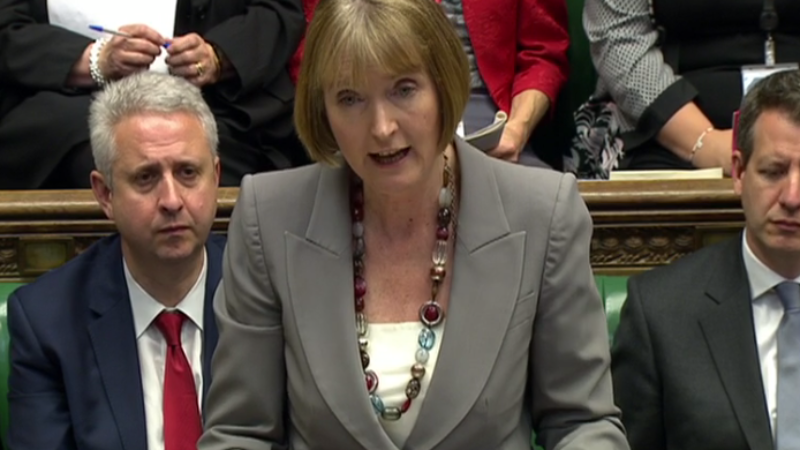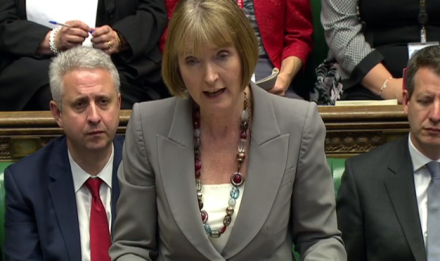
Who is the party of working people? No, I know you think you know. But who is really the party of working people?
That question was central to today’s PMQs, with both Cameron and Harman claiming the mantle as their own.
On the one hand, perhaps it is good news that one of the major debates in British politics is taking place on what is traditionally Labour’s turf. On the other hand, it only seems to be taking place there because the Conservatives have advanced so far into Labour territory.
I am not convinced, for example, that upon seeing the Normans before the Battle of Hastings, King Harold will have told his troops “It’s alright lads, we’ve got home advantage.”
Harman took us on to the topic, reacting to Cameron’s speech earlier in the week, asking:
“Isn’t it inevitable that cutting tax credits for working families, unless employers raise their wages immediately, means children will be worse off?”
The obvious answer to this question (“Yes.”) would probably not have been a wise PR move. Instead, Cameron drew up the kind of simplistic dividing lines that Gordon Brown used to wield so effectively in his pomp. The best way to solve out-of-work poverty? Get people into work. In-work poverty? Higher rate of pay and lower taxes.
“Let’s have an economy”, he said, “With higher pay, lower taxes and lower welfare.” He then, in true Brown fashion, crudely marked the opposition with their own argument: “What she [Harman] seems to want is the current failure of low pay, high taxes and high welfare.”
We know that being in favour of higher wages means nothing unless you have a plan for making it happen. We know if you cut tax credits without ensuring that wages are rising will mean that people are worse off. But, with a Budget just a few weeks away, it is not worth Labour betting the house on that attack. It only works until they do have a plan for pushing up wages – and that’s exactly the kind of thing we can expect from Osborne to detract attention way what will otherwise be another severe austerity package.
Cameron seems to have acclimatised to his new sparring partner. Although Harman is showing her experience as a capable Commons performer, having a woman across from the PM at the despatch box is not automatically posing him the problems some had hoped. In the end, he’s still quite good at this.
And the other thing we’ve now learned is that David Cameron will, without warning, still go back to the debt and the deficit he inherited. Can the line really last forever? Who knows. But the result on May 7th shows us it’s still effective, and he knows it.





More from LabourList
Reeves bets on patience over populism
‘Energy efficiency changes must work for older private renters’
‘Labour’s creative destruction dilemma’